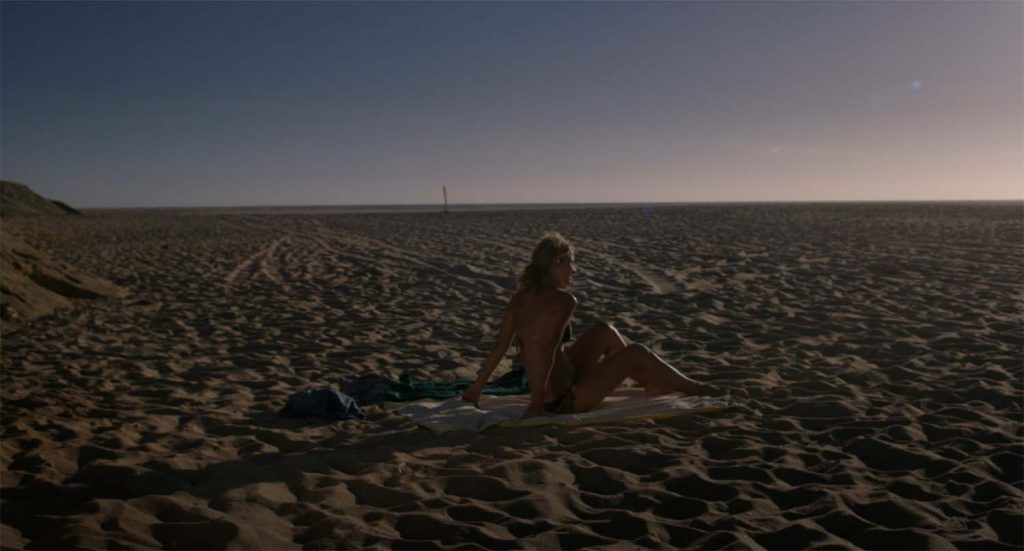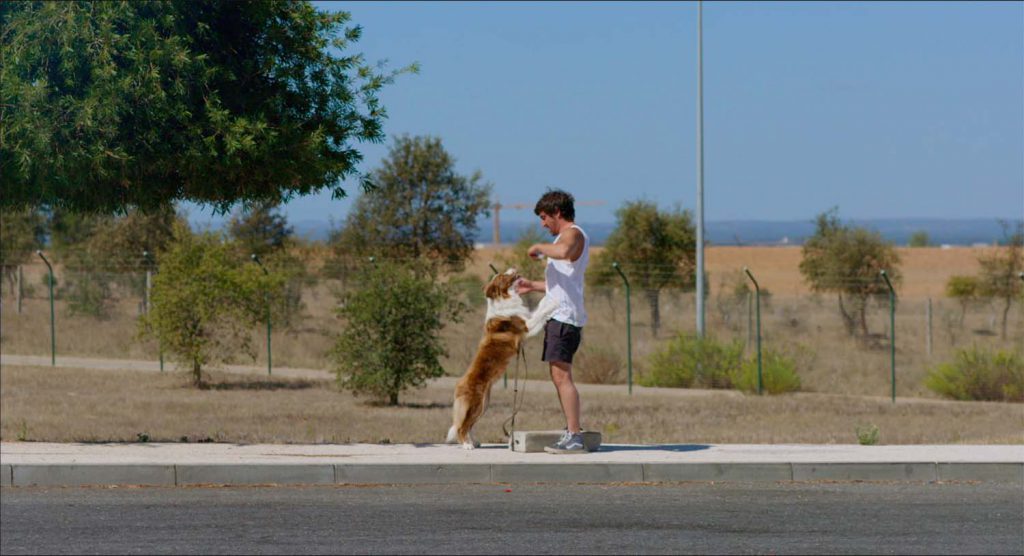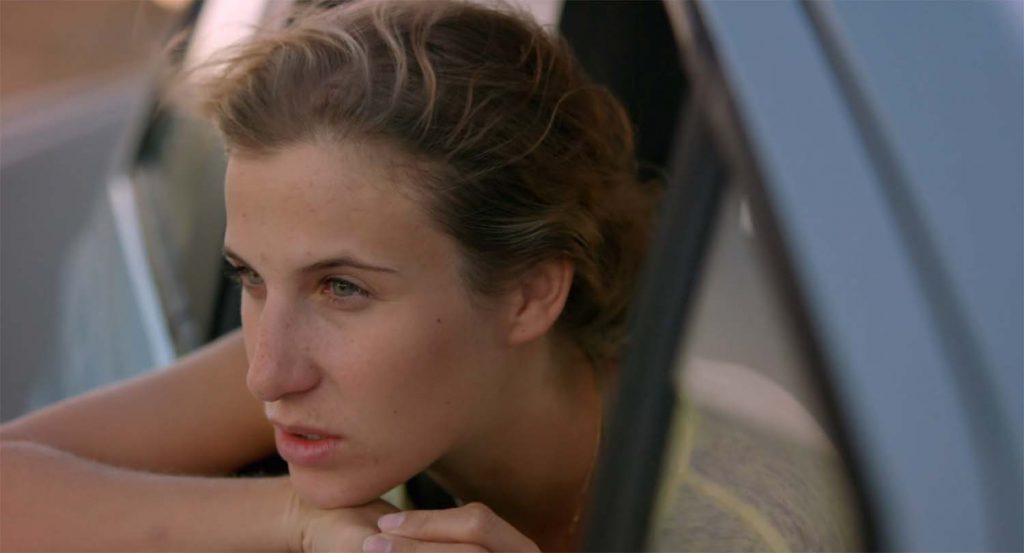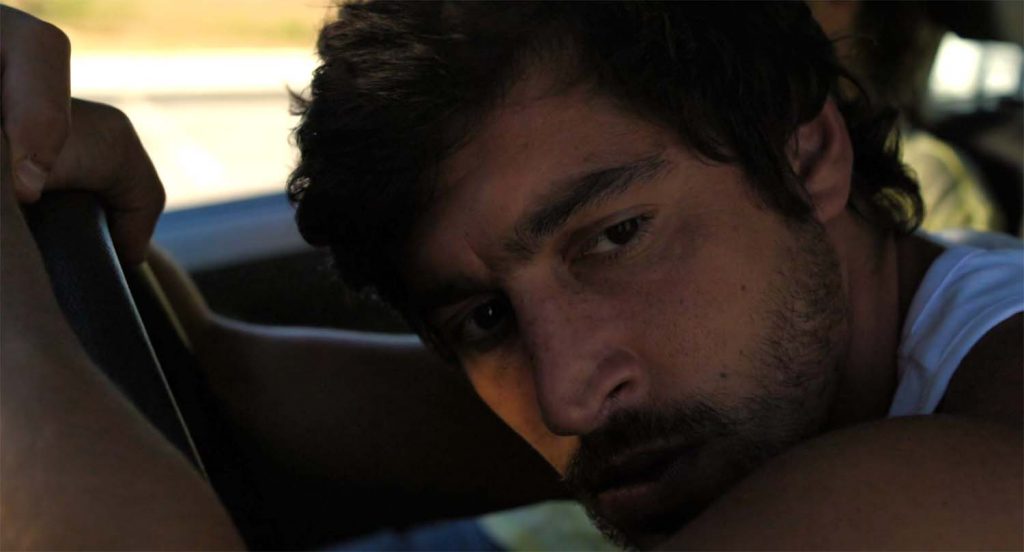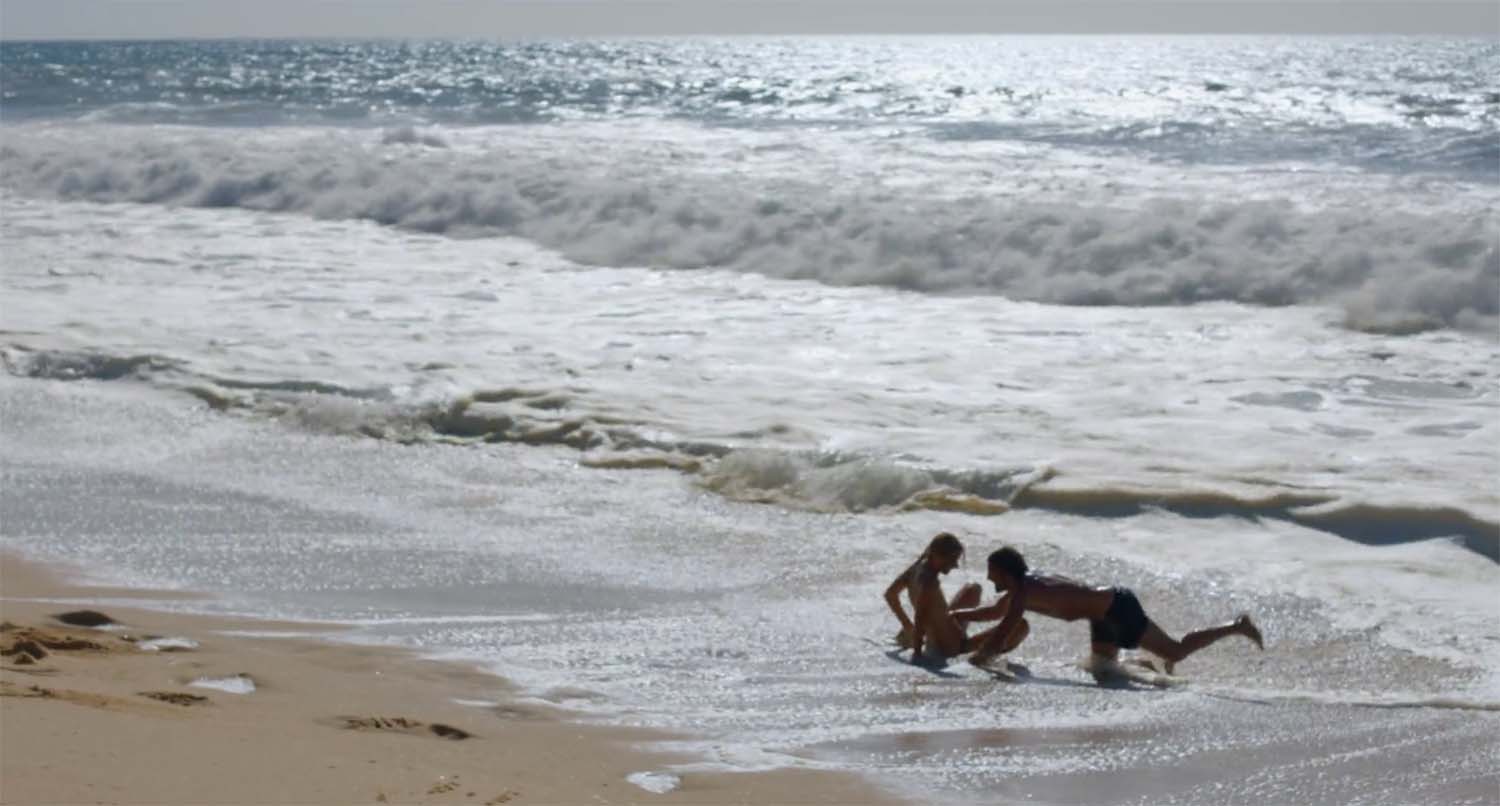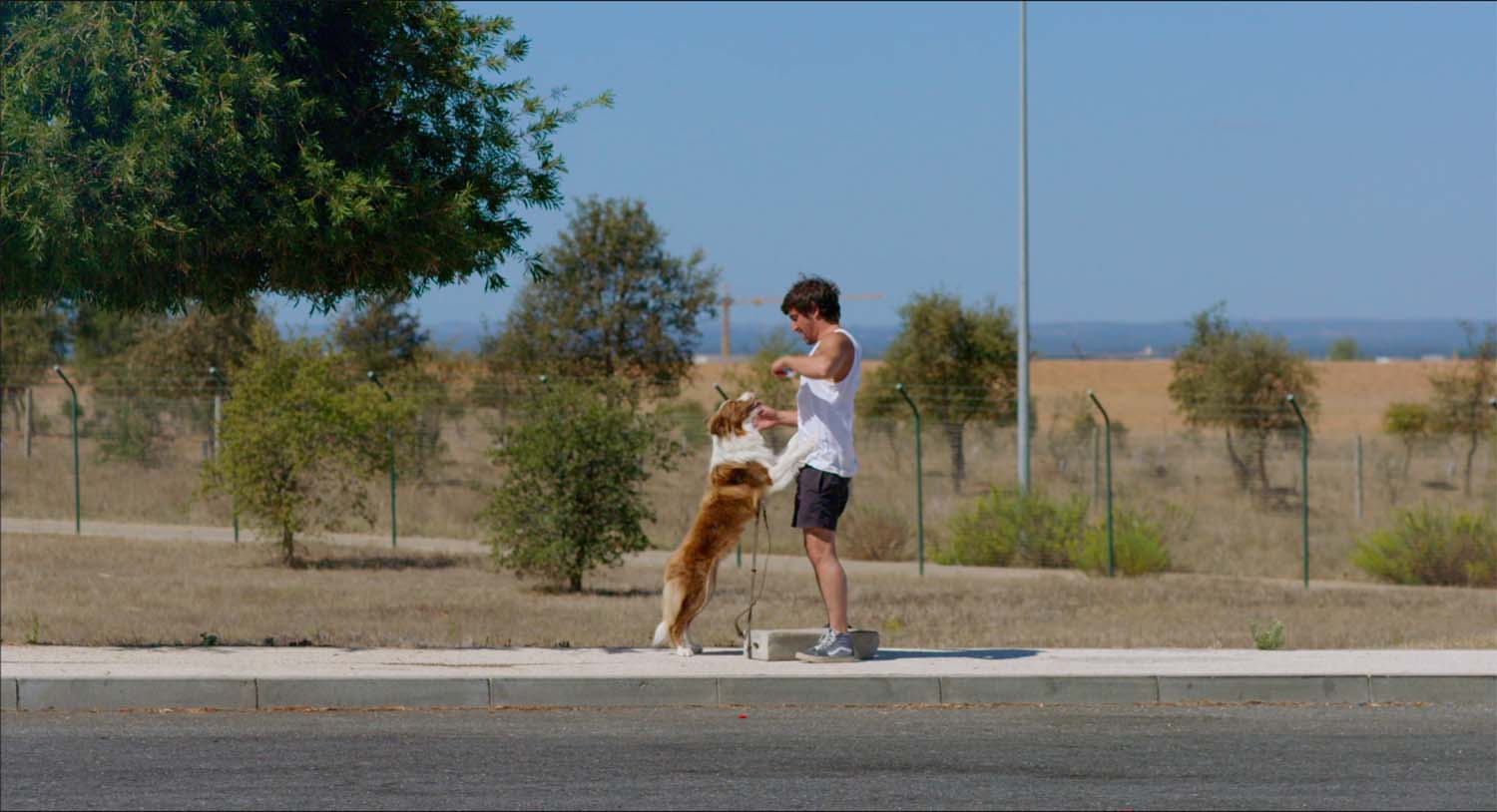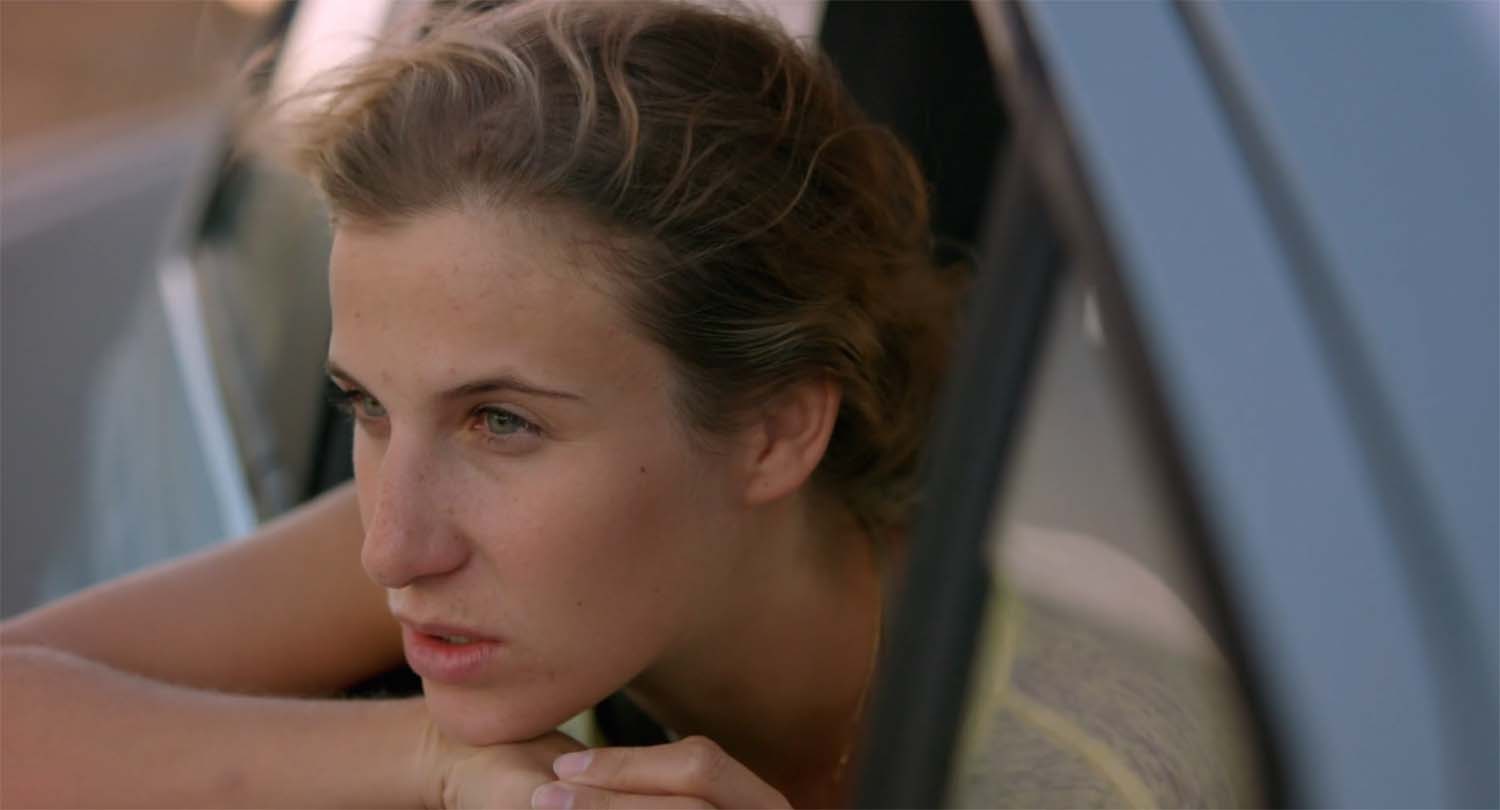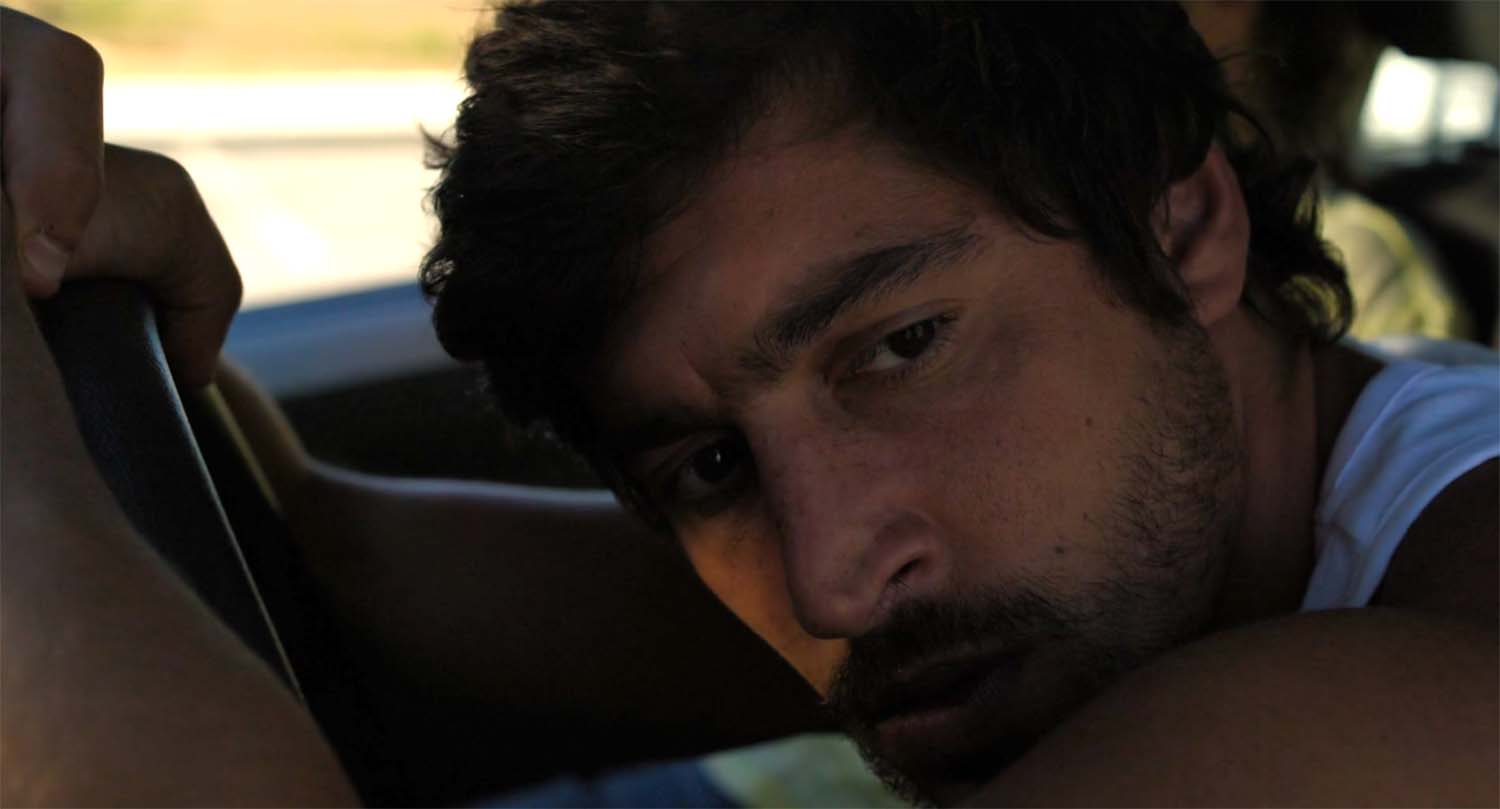Was there a “triggering incident” in your career, an event or situation, that took you toward cinema?
In my case, it’s a story that mingles theater and cinema. When I was very small, my mother took me to see a show in which one of her friends, an actor, was in the cast. It was a kind of “jungle cabaret.” It wasn’t like the theater where you sit down and have the audience on one side and the actors on the other; the actors were in the audience, playing their parts. This friend of my mother, who I knew very well, welcomed us disguised as a cowboy. I was very happy to see him but when I said “Hello,” he talked as if he really was a cowboy. He said, “Who are you?” while pointing his gun at me!
It’s just a small anecdote but it affected me, because I felt betrayed, but at the same time completely fascinated by the possibility that someone I knew well could become someone else. This harmless event opened up a new dimension for me, which also implied the possibility of suspending all social conventions. I started acting. It was a feeling of great freedom and at the same time something completely terrifying.
FP: En août (In August, 2014), your first short film, is partly autobiographical. Could you talk about the relation in your films between what you draw from your personal experience and this possibility of being someone else?
JH: It’s indeed a film inspired by events that I experienced. It’s about a divorce, a father who leaves. It’s the last morning that a little girl spends with her father. He packs his bags and she goes out for a ride in the car with him before he goes, before their separation. But even if I start with real events, I always betray them. I change a lot of things to try to draw out the essential—an emotion, something that I can describe to others and that is not simply something in the personal register. The subjects are still personal but at the same time it is no longer “my life”; I try rather to make them ordinary so that they will say something to many people. But initially they are truly personal sensations.
For example, in En août, I started with the fact that when I was little I loved watching my father shave. And there are other more clearly personal elements; for instance I did the shooting in a chalet in Switzerland because I grew up in a chalet in Switzerland, and I wanted to film in places that I knew.
FP: Could one say that for you, fiction gives you access to this possibility of being someone else?
JH: I think so. I have never made documentaries until now and, perhaps because I’m an actress, I have always felt like going for fiction is a way of transfiguring things and, in a certain sense, changing life. It does not change my personal life, but it is a way of standing further back from what I experience. I’m talking not only about the fact of making films but also and above all about the fact of watching them. Cinema is a multitude of views of the world, and the great filmmakers are those who have precise, authentic views. Being a film lover is also a way of better understanding the world and what happens to me and, finally, something that enables me to live. It’s exactly the same in my acting work. When I am in a play by Anton Chekhov or William Shakespeare, I try to bring feelings that are close to what I have experienced personally, but nevertheless what is interesting is that the spectator doesn’t give a damn if something comes from me—he or she is in the fiction, with the character.
FP: That makes me think of what Jean-Luc Godard said once: “A documentary is what happens to other people, fiction is what happens to me.” And speaking of Godard, who now lives in Rolle, Switzerland, I must ask you about the project you are developing at the moment, an adaptation of a novel by one of the greatest French-speaking Swiss writers: L’amour du monde (The Love of the World, 1925) by Charles Ferdinand Ramuz.
JH: It’s a period film with the action set in Switzerland at the beginning of the twentieth century. L’amour du monde tells the story of the arrival of a cinema in a small village in Lavaux and how the irruption of these images and the return of Louis, a young man who had been abroad for a long time, causes chaos in the town. Louis has a different way of functioning. He doesn’t work and is not really fit for work, preferring to play with children, and he has a strange way of being that disturbs the community. The novel is close to the story dimension of a tale; no village in Lavaux actually resembles the village that Ramuz describes.
Another interesting thing in the story is the return to the moment when cinema arrived, the questions that people asked themselves at the time and how they predicted that it would change their relation to life completely. Like today, when we are massively bombarded with images and we cannot really understand the effect of this bombardment.
FP: At the time there were even people who said that cinema could cause eye diseases, and there was a whole parallel trade is medicines and therapies.
JH: This question of technological change is part of what makes Ramuz’s story so modern. The other aspect of the novel that preoccupies me is the relation to images in the sense of a relation to the fantasy. How do these images start running through the heads of the villagers? Then what happens? Nothing, perhaps, or perhaps something very violent. There’s a character called Thérèse whom I find very beautiful. She is the daughter of the village gendarme. She sees women on the screen and decides to leave, to escape. It is interesting to see how all these persons react differently to this small revolution when the cinema arrives. Thérèse goes, leaving her father alone, and it ends very badly. A great tragedy.
I think that this is amazing—the way in which she has an intense experience and is cheated at the same time. She isn’t happy where she is, and pursues a fantasy. This calls into question our whole relation to the stories and images that I talked about before. She is entrapped by a fiction. The book also talks about a Protestant village with a certain mentality that one shouldn’t stand out from the rest, that one should stay in one’s place. It is a dimension in which life is devoted essentially to work.
FP: This brings us to Soltar (2016), the film you are presenting at the Biennale de l’Image en Mouvement: first because you are shooting in Portugal—familiar territory there again—and second because the leading character is again a young man whose presence is disturbing, sometimes even frightening.
JH: I was brought up in both countries. My father is Portuguese and my mother is Swiss. They met when my father was picking grapes above the lake; my mother, who had grown up in a small mountain village, went to Portugal with him. I was born there and, later, we returned to Switzerland. I could have shot the film somewhere else, but beyond the biographical aspect, I found it simply powerful to be near the Atlantic. I couldn’t have shot it in the same way elsewhere. I don’t know what will happen in ten years’ time—I will be more mature and may perhaps have made other films—but now I have a need to film places that I know and with which I have a special relation so that I know where to place the camera, where to frame. This was necessary for En août and Soltar, in any case.
The male character in Soltar is inspired by an experience I had when I was twenty. As in L’amour du monde, it was someone who was on the fringe. We don’t know what the matter is, but it is clear that he is not simply suffering from depression. Something else drives him and, more generally, I would say that he is in another reality. Although the girl has the impression of discovering everything with him, she has to abandon him to survive. This is the whole drama of the film. She realizes that she can no longer live with him, even if she would like to carry on.
FP: In both cases, a dropout is a focus of love. But this is not from a first-person viewpoint, and the narrator is not a dropout.
JH: Each time, what I try to recount is my own experience, how I met people who were unconventional and how these people shook me up. In L’amour du monde, there is a community based on work, and what the character does is upsetting all that. Whereas in Soltar it is told as a girl’s love story, because I decided that this was how to see the event in the most intimate manner. It is suffering that everyone can understand. Even though we see that his behavior is excessive, we are sad to see him go because he fascinates us. Finally, it might be a way of better defining “normal” instead of talking about fringe behavior as eccentric, sad, or exotic.
FP: To return to En août, although we are in a childhood universe, one of a character who seems to be “at the edge” for one reason or another, there is this question of a wrench, after all. Could we say that it is the wrench itself that drives us, that makes us grow up, and this implicit separation—the fact that at a certain moment we shall have to part with the two characters—is precisely what touches us?
JH: Both films are key moments in the formation of a young woman. A kind of sentimental education where one learns to say goodbye to something all the time. At the end of Soltar, there’s a song by Caetano Veloso about a man who leaves for Bahia and says farewell to his home country. Even if this is a question of a country and of not a person, it’s the same story: the thing that happens when the little girl says goodbye to her father, and to her childhood, too, in a way, and when later in her life she says goodbye to a love and to a season of her youth. It is true that we are also separated from them at the end of the film. The image goes black, it is over—everything runs toward that, too, a true feeling of an end.


